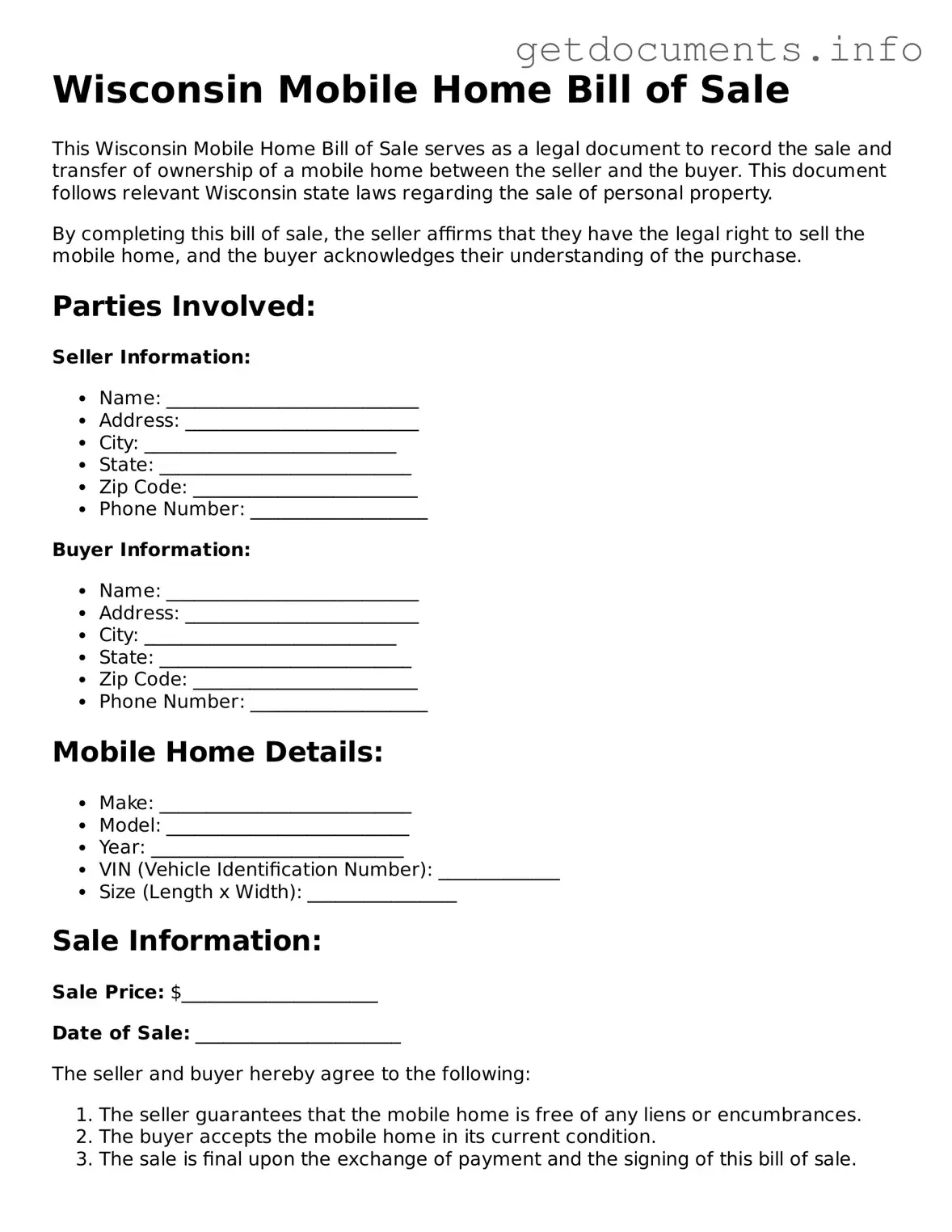Free Mobile Home Bill of Sale Template for Wisconsin
The Wisconsin Mobile Home Bill of Sale form is a legal document that facilitates the transfer of ownership of a mobile home from one party to another. This form outlines essential details such as the buyer's and seller's information, the mobile home's description, and the sale price. To ensure a smooth transaction, it's important to fill out this form accurately; click the button below to get started!
Access Mobile Home Bill of Sale Editor

Free Mobile Home Bill of Sale Template for Wisconsin
Access Mobile Home Bill of Sale Editor
Got places to be? Complete the form fast
Fill out Mobile Home Bill of Sale online and avoid printing or scanning.
Access Mobile Home Bill of Sale Editor
or
⇩ PDF File
